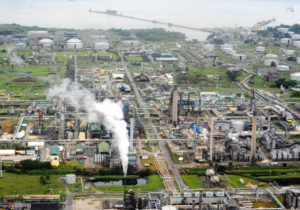
(US State Department, 19.Jan.2021) — The United States sent a consul to Guayaquil, Ecuador, in 1825, and the U.S. Embassy in Quito opened in 1848. The United States and Ecuador share a history of partnership and cooperation, and have mutual interests in economic prosperity, democratic governance, regional security, environmental sustainability and protection, and academic exchanges. The welfare, safety, and protection of U.S. citizens in Ecuador are the highest priorities and mission of the Department of State. The United States supports the Government of Ecuador’s determination to strengthen democratic institutions, counter transnational organized crime, and increase economic prosperity while respecting the rights of the people of Ecuador
The Moreno administration has taken steps to fight corruption, bolster security, adopt a market-oriented model, remove restrictions on civil society, encourage free press, and strengthen democratic governance.
Ecuador shares the U.S. concern over narcotrafficking and the activities of illegal armed groups, particularly along Ecuador’s northern border with Colombia. The United States and Ecuador have signed several agreements and established new programs to enhance counternarcotics and law enforcement cooperation. U.S.-Ecuadorian military relations are also expanding through training, assistance, and the reestablishment of an Office of Security Cooperation at the U.S. Embassy in Quito. Additionally, the Department of State’s Bureau of International Narcotics and Law Enforcement Affairs is providing counternarcotics and counter-transnational organized crime capacity-building assistance and equipment support, totaling $7 million in bilateral assistance during FY 2019.
Ecuador, as an original signatory to the Quito Process, has also committed to assisting in the social and economic integration of Venezuelans in response to the regional migration and refugee challenges caused by the political and humanitarian crises in Venezuela. It is also an active observer to the Lima Group and a member of the International Contact Group on Venezuela.
Pandemic Response
After initially experiencing some of the worst infection and death rates as a result of COVID-19, Ecuador has worked to stabilize the health system and the effects of the virus on its population. The United States is proud to have partnered with the people and Government of Ecuador during this crisis, providing nearly $18 million in Department of State/U.S. Agency for International Development (USAID) assistance. Ecuador benefited from medical equipment and personal protective equipment donations; funding to make improvements to its medical and public health systems; funds to purchase rapid test kits; help for refugees, migrants, and host communities; and assistance for economic reactivation
U.S. Assistance to Ecuador
U.S. assistance in Ecuador is designed to strengthen the rule of law and civil society; increase government transparency; modernize government participation in capital markets and infrastructure development; promote broader access to economic opportunity for entrepreneurs (especially women); improve citizen security; counter illicit trafficking and transnational organized crime; combat gender-based violence; defend fundamental freedoms and human rights; promote academic exchanges and the teaching of English; conserve biodiversity; and mitigate the risk and impact of natural disasters. The United States also provides humanitarian assistance through international and local organizations to help Ecuador protect and provide services to refugees, migrants, and other vulnerable populations.
In January 2020 as part of ongoing U.S. efforts to combat illegal, unreported, and unregulated (IUU) fishing, the United States hosted a successful Port State Measures Agreement inspector training in Peru where Ecuadorian fisheries inspectors participated.
Coordination on enforcement efforts to combat IUU fishing and plans for future inspector trainings with Ecuador are ongoing. Through the Global Defense Reform Program, the U.S. will embed a cyber-security advisor within Ecuador’s Ministry of Defense Joint Cyber Defense Command to provide direct cyber security and policy advisory support. The one-year of assistance will begin in late 2020, with the possibility of extension. After signing a memorandum of understanding with the Government of Ecuador in May 2019 to renew cooperation, USAID reestablished an in-country presence in 2020 for the first time since 2014
Bilateral Economic Relations
The United States is Ecuador’s principal trading partner. Bilateral goods trade between the countries totaled nearly $12.5 billion in 2019. Major U.S. exports to Ecuador include petroleum products, machinery, computers and electronic equipment, chemicals and fertilizers, transportation equipment, and cereals and grains. Ecuador benefits from duty-free entry into the United States for many of its products under the Generalized System of Preferences. U.S. imports from Ecuador include crude oil, shrimp and prawns, bananas and plantains, cocoa, and cut flowers (roses). The prior government of Ecuador took action to terminate 17 of its bilateral investment treaties (BIT) in May 2017, including its treaty with the United States. The termination of the U.S.-Ecuador BIT went into effect in May 2018, although it will continue to apply for ten years to covered investments made or acquired prior to the date of termination. The Moreno administration has expressed interest in negotiating a new BIT, as well as pursuing other means to expand and deepen commercial and financial ties with the United States. Direct investment by the U.S. in Ecuador is led by the manufacturing, wholesale, and retail sectors. In 2018, total U.S. foreign direct investment in Ecuador reached $898 million, which increased by $119 million from 2017.
Ecuador has been fully dollarized since 2000. The Ecuadorian government is implementing a comprehensive reform program aimed at modernizing the economy and paving the way for strong, sustained, and equitable growth. This “new economic policy” and collaborative relationships with the International Monetary Fund and World Bank are geared towards strengthening the fiscal position and improving competitiveness.
Under the América Crece initiative, the United States and Ecuador are working to strengthen Ecuador’s energy resource management and support responsible foreign direct investment in the energy sector. Bilateral cooperation seeks to ensure there are solid governance practices in place that foster transparency and develop processes free from bias or corruption.
Ecuador’s Membership in International Organizations
Ecuador and the United States belong to a number of the same international organizations, including the United Nations, Organization of American States, International Monetary Fund, Inter-American Development Bank, and World Trade Organization. Ecuador ended its participation in the Bolivarian Alliance for the Americas in 2018 and the Union of South American Nations in 2019. Ecuador announced its withdrawal from the Organization of Petroleum Exporting Countries in December 2019.
More information about Ecuador is available on the Ecuador Country Page and from other Department of State publications and other sources listed at the end of this fact sheet.
____________________

